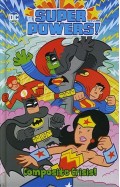LIVING ON THE EDGE: PAKISTAN-IRAN RELATIONS CHALLENGES & PROSPECTS
By: Raza Ali khan
-
Rs 1,100.75
- Rs 1,295.00
- 15%
You save Rs 194.25.
Due to constant currency fluctuation, prices are subject to change with or without notice.
The fundamental reason to write this book is my strong conviction that there exists so much in common between Pakistan and Iran that these two neighbours deserve far better relations. This relationship started off on an upbeat note. Iran was the first state that recognized Pakistan following its independence in August 1947. The Pakistani government reciprocated the act in February 1979, when Islamabad Pioneered in recognizing the Islamic Republic of Iran subsequent to the Iranian Revolution. The bond of commonality between Pakistan and Iran runs through common history to common civilization and also through common faith to common culture and common borders. Surely, these relations have not always been smooth but still never remained extremely rough. Iran has all along supported Pakistan in crises. Pakistan too has been helped towards its neighbor in difficult times. This book is therefore an attempt to identify those common grounds which if genuinely discovered May bring Islamabad and Tehran well knitted to work for the betterment of the region. Through this book, I have endeavoured to analyse all conceivable factors and trends impacting these relations with a view to suggest the way forward for improvement in relations. It explores the state of strategic, economic, political, security, and other relations between the two neighbours. Also examined are the areas of convergence and divergence amongst these two states. This book will be useful to students of international relations, carrying out research on security politics of South Asia affecting Pakistan, Iran and Afghanistan. It will also be a good guide for policymakers/opinion-builders focusing on foreign affairs and security of Pakistan especially with regard to Iran and Afghanistan. An outstanding work on the subject. Author's exploration of Iran-Pakistan relations is profoundly deep, objectively analytical and in my view, makes a solid contributi
The fundamental reason to write this book is my strong conviction that there exists so much in common between Pakistan and Iran that these two neighbours deserve far better relations. This relationship started off on an upbeat note. Iran was the first state that recognized Pakistan following its independence in August 1947. The Pakistani government reciprocated the act in February 1979, when Islamabad Pioneered in recognizing the Islamic Republic of Iran subsequent to the Iranian Revolution. The bond of commonality between Pakistan and Iran runs through common history to common civilization and also through common faith to common culture and common borders. Surely, these relations have not always been smooth but still never remained extremely rough. Iran has all along supported Pakistan in crises. Pakistan too has been helped towards its neighbor in difficult times. This book is therefore an attempt to identify those common grounds which if genuinely discovered May bring Islamabad and Tehran well knitted to work for the betterment of the region. Through this book, I have endeavoured to analyse all conceivable factors and trends impacting these relations with a view to suggest the way forward for improvement in relations. It explores the state of strategic, economic, political, security, and other relations between the two neighbours. Also examined are the areas of convergence and divergence amongst these two states. This book will be useful to students of international relations, carrying out research on security politics of South Asia affecting Pakistan, Iran and Afghanistan. It will also be a good guide for policymakers/opinion-builders focusing on foreign affairs and security of Pakistan especially with regard to Iran and Afghanistan. An outstanding work on the subject. Author's exploration of Iran-Pakistan relations is profoundly deep, objectively analytical and in my view, makes a solid contributi
LIVING ON THE EDGE: PAKISTAN-IRAN RELATIONS CHALLENGES & PROSPECTS
By: Raza Ali khan
Rs 1,100.75 Rs 1,295.00 Ex Tax :Rs 1,100.75
Zubin Mehta: A Musical Journey (An Authorized Biography)
By: VOID - Bakhtiar K. Dadabhoy
Rs 892.50 Rs 1,050.00 Ex Tax :Rs 892.50
Manning Up: How the Rise of Women Has Turned Men into Boys
By: Kay Hymowitz
Rs 845.75 Rs 995.00 Ex Tax :Rs 845.75
Machiavelli: The Art of Teaching People What to Fear Paperback
By: Patrick Boucheron
Rs 1,270.75 Rs 1,495.00 Ex Tax :Rs 1,270.75
Legendary Dinners - From Grace Kelly to Jackson Pollock
By: Anne Petersen
Rs 10,195.75 Rs 11,995.00 Ex Tax :Rs 10,195.75
Lift as You Climb: Women and the art of ambition - (HB)
By: Viv Groskop
Rs 1,865.75 Rs 2,195.00 Ex Tax :Rs 1,865.75
The Science of Spice : Understand Flavour Connections and Revolutionize your Cooking - (HB)
By: Dr. Stuart Farrimond
Rs 4,156.00 Rs 5,195.00 Ex Tax :Rs 4,156.00
Star Wars: 5-Minute Star Wars Stories - (HB)
By: lucas press
Rs 1,440.75 Rs 1,695.00 Ex Tax :Rs 1,440.75
The Contest for the Indian Ocean - And the Making of a New World Order
By: Darshana M. Baruah
Rs 9,895.50 Rs 10,995.00 Ex Tax :Rs 9,895.50
Three Cups of Deceit - How Greg Mortenson Humanitarian Hero Lost His Way
By: Jon Krakauer
Rs 237.00 Rs 395.00 Ex Tax :Rs 237.00
Same as Ever - Timeless Lessons on Risk, Opportunity and Living a Good Life
By: Morgan Housel
Rs 3,685.50 Rs 4,095.00 Ex Tax :Rs 3,685.50
Unapologetically You: Harness Your Individuality and Stand Out at Work
By: Dorie Clark
Rs 2,375.75 Rs 2,795.00 Ex Tax :Rs 2,375.75
THE TOP AND THE BALL (HANS CHRISTIAN ANDERSEN'S FAIRY TALES)
By: Dreamland Publications
Rs 63.75 Rs 75.00 Ex Tax :Rs 63.75
Discovering Bugs: Meet the Coolest Creepy Crawlies on the Planet Hardcover – Illustrated, June 6, 2017
By: Julius Csotonyi
Rs 1,797.50 Rs 3,595.00 Ex Tax :Rs 1,797.50
Zubin Mehta: A Musical Journey (An Authorized Biography)
By: VOID - Bakhtiar K. Dadabhoy
Rs 892.50 Rs 1,050.00 Ex Tax :Rs 892.50
LIVING ON THE EDGE: PAKISTAN-IRAN RELATIONS CHALLENGES & PROSPECTS
By: Raza Ali khan
Rs 1,100.75 Rs 1,295.00 Ex Tax :Rs 1,100.75












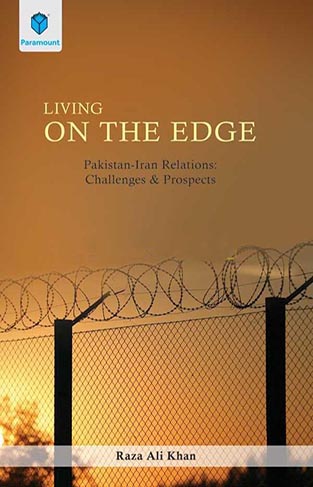
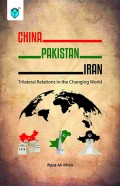
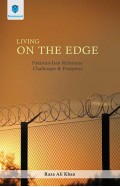
-120x187.jpg?q6)








-120x187.jpg?q6)


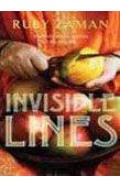









-120x187.jpg?q6)



-120x187.jpg?q6)

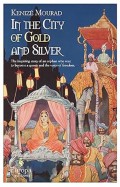
-120x187.jpg?q6)


